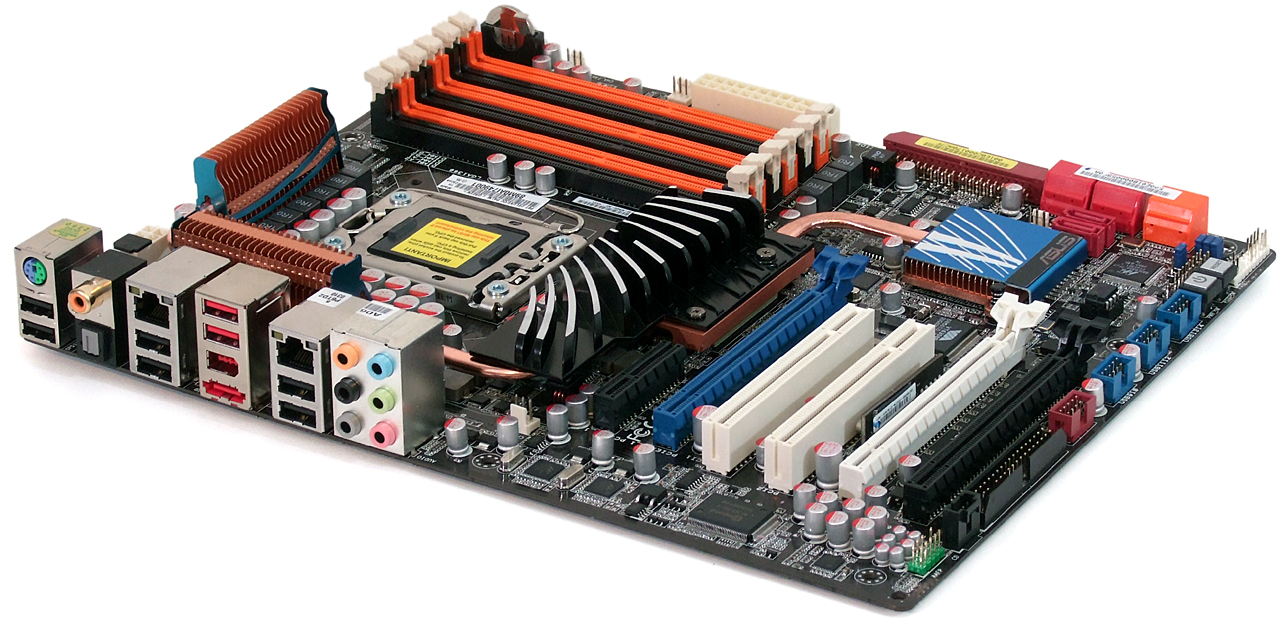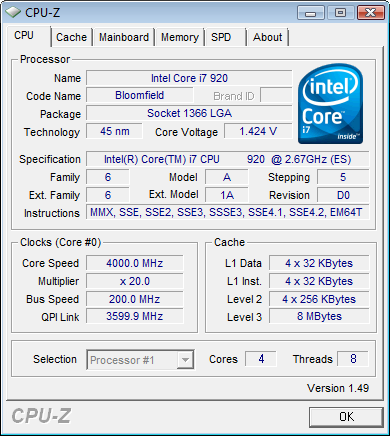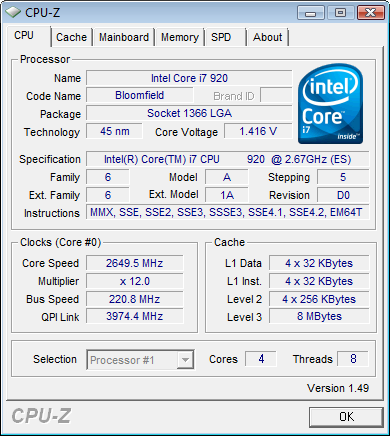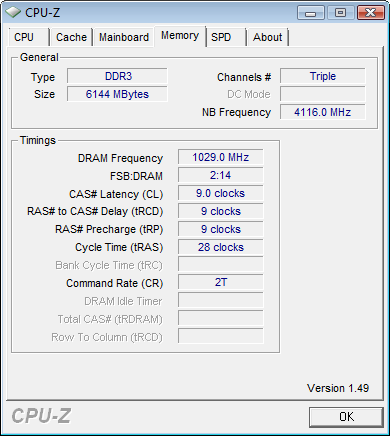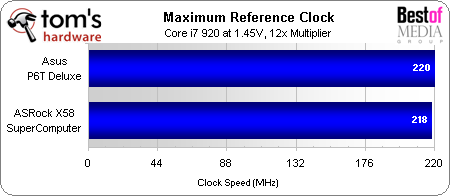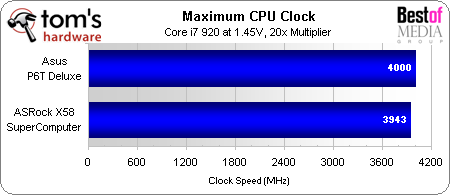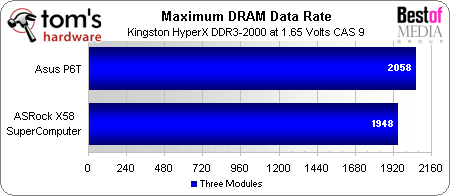The Truth Behind ASRock's X58 SuperComputer
The Contender: Asus P6T Deluxe
Now that we’ve looked at what the latest-revision X58 SuperComputer motherboard offers by way of overclocking, let’s see how it compares to a similarly-priced product that most readers are familiar with, the Asus P6T Deluxe.
The P6T Deluxe was neglected in our previous two motherboard roundups because we simply didn’t have enough time to test multiple models per manufacturer. Though it’s recently been replaced by a newer version, our sample has proven stable through several previous overclocking articles. We thought today’s article would be a great send-off. BIOS 1405 (03-25-2009) provides full compatibility with this recent Core i7 stepping.
Proof that our D0-stepping Core i7 engineering sample simply doesn’t live up to the expectations of retail samples (and that our ASRock X58 SuperComputer board wasn't inhibiting the result at all) comes from the fact that this one wouldn’t go over 4.0 GHz stably, even on the P6T Deluxe. In fact, the very first Core i7 retail sample we ever tested reached 4.20 GHz using similar cooling, at slightly-higher voltage levels, which this D0 sample can’t tolerate. It appears that the Core i7 D0 samples Intel sent may have come from a less-than-stellar batch, and that might explain why other sites out there have set these aside and instead purchased retail versions.
The P6T pushes this D0-stepping engineering sample processor to 221 MHz base clock, approaching the limit of previous Core i7 C0-stepping tests. We were hoping to set a speed record.
A top DRAM clock of DDR3-2058 is about average for this motherboard and RAM. Again, we were hoping that improvements in the CPU memory controller might allow us to reach new heights.
ASRock’s maximum reference clock compares favorably to the Asus P6T Deluxe.
A tight race for highest CPU clock (using eight-thread Prime95) puts Asus on top by a few megahertz, probably due to its more elaborate voltage regulator.
Get Tom's Hardware's best news and in-depth reviews, straight to your inbox.
Memory overclocking was ASRock’s weakness this time, as the board didn’t reach the DDR3-2000 rating of our Kingston HyperX modules.
Current page: The Contender: Asus P6T Deluxe
Prev Page The X58 SuperComputer, Revised And Revisited Next Page Real World Test: We Bought One From Newegg-
falchard There are several boards that can support 4 double wide GPUs like the MSI K9A2 Platinum.Reply -
Crashman falchardThere are several boards that can support 4 double wide GPUs like the MSI K9A2 Platinum.Reply
K9A2 Platinum cannot support Core i7: The ASRock X58 SuperComputer is only ever compared to other LGA-1366 motherboards. -
goonting It supports both Nvidia and ATI...at minimal cost compared to ASUS, MSI, and Gigabyte variantsReply -
Crashman Reply9472126 said:It supports both Nvidia and ATI...at minimal cost compared to ASUS, MSI, and Gigabyte variants
You do get a lot of features, but it's not cheaper than the competition. The big difference is that it supports four double-thick cards, as long as your case has enough room under the last slot. -
Shadow703793 Quick question, what is the higher voltage limit for the i7? For example the C2D 45nm are said to be at 1.45v and 65nm are said to be at 1.5v. I define the higher voltage limit as the point where actual damage to CPU can happen (point on no return). Is it still 1.45v for the i7 as it's still 45nm?Reply -
Crashman Reply9472132 said:Quick question, what is the higher voltage limit for the i7? For example the C2D 45nm are said to be at 1.45v and 65nm are said to be at 1.5v. I define the higher voltage limit as the point where actual damage to CPU can happen (point on no return). Is it still 1.45v for the i7 as it's still 45nm?
Yes, Tom's Hardware uses 1.44 to 1.45 volts for testing the overclocking capabilty of its Core i7 920 on various boards. The problem is that set voltage is never actual voltage, and an attempt to get 1.44-1.45V actual voltage would overload the VRM when using traditional voltage-changing methods on version 1.03 boards (and 1.04 with early BIOS). Newer BIOS on 1.05 boards (and 1.04 according to ASRock) allows setting electronic compensation which is much more responsive (than a person is) to changes in load, preventing damage. -
Marcus52 It does not impress me that AsRock would continue to sell the older versions of this board; they should pull them all from newegg's stock and everyone else, fix them or throw them away, not foist them on un-suspecting buyers with rebates and free shipping offers. I know it is common practice for manufacturers to do what they are doing, but it is, to me, an abhorrent practice. If the problem could be fixed with just a BIOS update all well and good, especially for us early adopters, but it can't, so anyone hoping to overclock their i7 920 will be at risk - and a huge percentage of i7 buyers will overclock this chip even if they never have before because it is so easy and inexpensive (can even be done on stock air cooler to some degree).Reply
Kudos to them for their slot layout though, that is what would cause me to buy their board; much better use than, say, a daughterboard slot for a sound processor which might be good but I'm going to replace anyway (much as I love my Asus Rampage II Extreme, that 'feature' chaps me). -
hellwig Marcus52It does not impress me that AsRock would continue to sell the older versions of this board; they should pull them all from newegg's stock and everyone else, fix them or throw them away, not foist them on un-suspecting buyers with rebates and free shipping offers.Reply
Unsuspecting buyers? I'm pretty sure you can read their warranty where they tell you that manually adjusting settings is dangerous and can void your warranty. Believe it or not, there is actually a reason companies tend to recommend against overclocking their products, because you are taking the product out of its designed specifications.
I don't think any of these ASRock boards are failing out of the box with a stock CPU, and therefore, ASRock has no responsibility to pull or repair these boards. Should Ford re-build your engine cause you used jet fuel instead of regular gasoline?
Anyone who knows enough to overclock their CPU should know that they do so at their own risk.
-
Crashman Marcus52Kudos to them for their slot layout though, that is what would cause me to buy their board; much better use than, say, a daughterboard slot for a sound processor which might be good but I'm going to replace anyway (much as I love my Asus Rampage II Extreme, that 'feature' chaps me).Reply
You know that Rampage II audio riser slot also supports x1 cards: Asus has some nice x1 sound cards.
